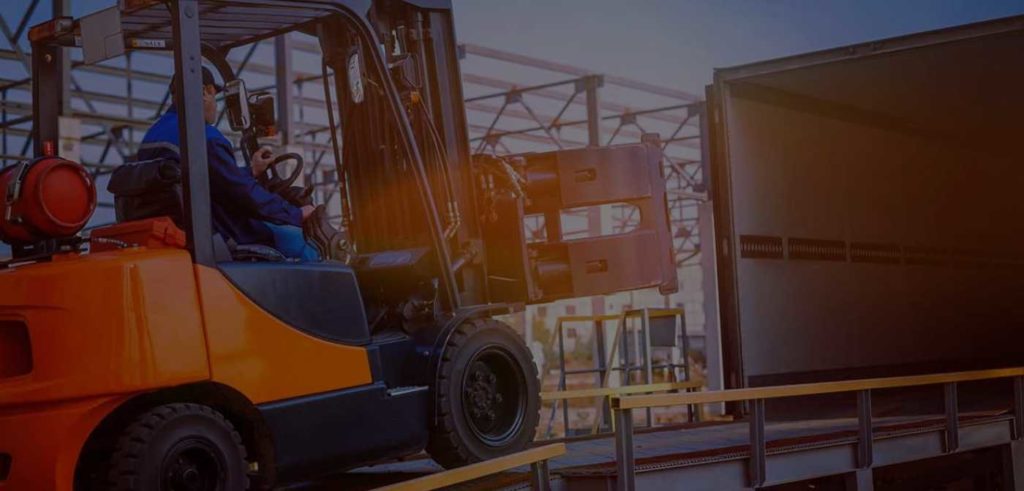As the company embarks on its next phase of growth, over the next five years, it aims to scale by offering relay as a service to the fleet owners as a result change the lives of more than 100,000 truck pilots by 2024…

IIT-IIM Alumni Deepak Garg believed that there was a large untapped potential in the Logistics sector and wanted to make a difference. “Logistic is a large and complex market with strong opportunities as 14 per cent of GDP is spent on logistics in India,” says Garg. It is a traditional sector with almost 70 per cent of it being road transportation. While it was a highly inefficient sector with high costs, he believed that it could grow well in the next 10 years to 20 years and saw a future for himself in it. In 2014, he quit his job in McKinsey and along with Gazal Kalra, set up Rivigo, a technology company that is making logistics industry more human, faster, safer and cost-effective through unique innovative model, enabled by strong interplay of technology, data, culture and operations excellence.
While the early days were hard for the team in terms of establishing the idea, economics, viability and credibility, the team was very clear about its vision and used technology to make logistics efficient. And it has emerged as a fast growing technology-enabled logistics company in India, owning a fleet of over 3000 trucks. The company is currently valued at Rs.654.82 crore and has raised six rounds of funds. It recently raised US $65 million (about Rs 445 crore) which was led by two of its existing investors – private equity firm Warburg Pincus and stage and sector-agnostic investor SAIF Partners. The company aims to use the proceeds to strengthen its technology and network coverage. With a team size of 5000 now across the country, the company is taking long strides in the sector.

Tacking the problems
Garg started researching this sector deeply and discovered a few things. One, the biggest problem in the transportation sector was there was a short supply of truck drivers. “The real issue was that the drivers spend months away from home under poor conditions and didn’t have social respect,” says Garg. Two, the trucking efficiency was low and the costs were high. And, finally, the customers did not think road transportation was reliable enough as the delivery time was very long . Taking all this into account, Garg came up with this idea of relay trucking and patented this concept. The relay trucking model is a unique solution to the ever growing truck driver shortage, helping drivers to maintain a healthy work-life balance and allowing them to be at their home every day. This also helps shorten the delivery time and improve truck efficiency.
“Our tagline became air shipment on road as our transit time was so low and that excited a lot of ecommerce companies,” recollects Garg about customer acquisition during early days. “Relay trucking became popular as an approach and became a buzzword in every logistics forum and we received a lot of inbound queries,” adds he. As the company grew, it built a direct sales team and has a b2b sales team of around 300 to 400 people.
We do not have to hire truck pilots in Metros. We have taken the jobs to rural areas, which have relay stations, and are creating jobs in the villages.
Taking long strides
With the help of its technology, Rivigo has been able to manage this huge and complicated network. In fact, within five years, the company has gone through the phase one of establishing a unique idea, bringing it to a certain scale, making it mainstream with 5000 customers in the corporate and retail segment. “We deliver goods to almost every pin code in the country,” says a proud Garg. It has also changed lives of more than 5000 truck pilots so far and has also set up a 3 million square feet sorting centre.
Commenting about what each stakeholder has to gain from their services, Garg says that a customer gets almost 50 per cent to 70 per cent reduction in their transit time which helps them optimise their inventory and working capital level. As a result the companies reduce their overall logistics spend and improve their logistics efficiency by making sure that the supply chain is faster.
There is a considerable change in the lives of truck pilots. He adds, “We do not have to hire truck pilots in Metros. We have taken the jobs to rural areas, which have the relay stations, and are creating jobs in the villages,” says a happy Garg.
Where to from here
As the company embarks on its next phase of growth, over the next five years, it aims to scale by offering relay as a service (RAAS) to the fleet owners (who own 20 odd trucks) who find it difficult to get truck drivers and make their trucks efficient. “While we have built the technology on our platform, we want to give this service, technology and operational excellence to fleet owners in the country,” says Garg. The company has already begun pilots of RAAS and the pilots are going successfully and over the next five years.
Currently, the company is running 3000 trucks owned by it in a relay ecosystem and all owned by us. In the next five years, it aims to run 30,000 to 50,000 trucks in the relay ecosystem. “We will not own all these trucks but will partner with fleet owners to whom we aim to take this technology to and make an impact,” shares the CEO. The company aims to put the next level of technology on IoT sensors and manage fleet owners’ fleet. “While managing our own fleet had its own advantages, we will be managing fleet owners’ fleet which requires certain kind of tech to be built and that is our next focus,” says he. Once the company does this, it aims to make a significant impact on the whole trucking ecosystem in India. “Our aims is to change the lives of more than 100,000 truck pilots by 2024,” says Garg on a concluding note.

Where to from here?
- Offer relay as a service (RAAS) to the fleet owners
- Next level of technology on IoT sensors and manage fleet owners’ fleet
- Aims to run 30,000 to 50,000 trucks in the relay ecosystem
- Change the lives of more than 100,000 truck pilots by 2024
Critical success factors:
- Passion and obsession of the founding team towards the sector and idea
- Quality of the team and the culture
- Timing of entering the market